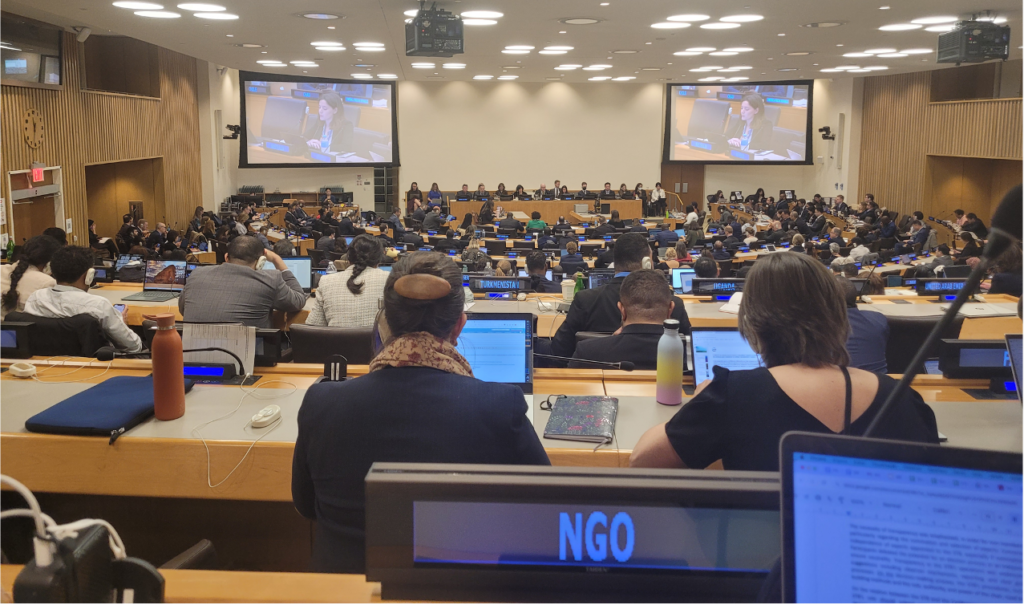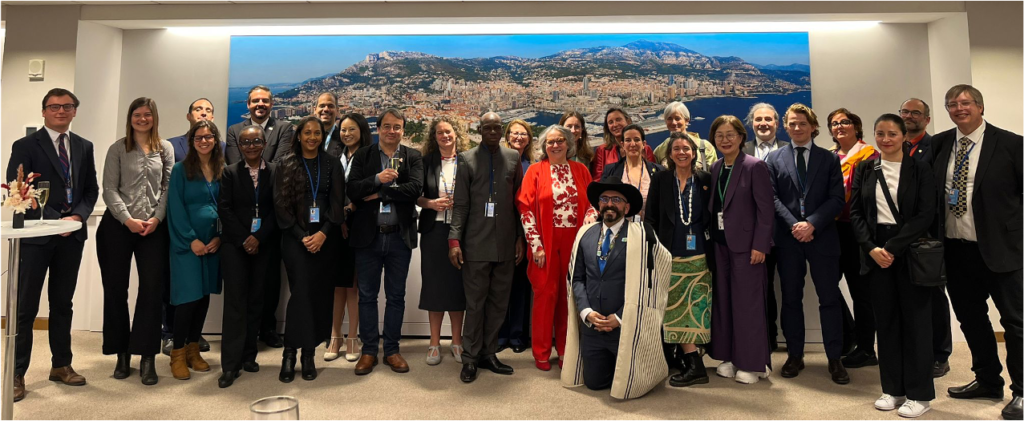71% of the Ocean surface is beyond any national jurisdiction. Everyone, therefore, has equal rights to navigate, fish and conduct scientific research in these waters. Referred to as the high seas and resembling the Wild West, the absence of any governance framework or control of activity leaves these areas particularly vulnerable to the immense threats facing our Ocean, including pollution, overfishing and climate change.
The Biodiversity Beyond National Jurisdictions (BBNJ) Treaty is the first international legally binding instrument that addresses the conservation and sustainable use of marine biodiversity in the high seas. Developed by the UN and adopted in June 2023 after more than a decade of negotiations, this landmark agreement – known also as the High Seas Treaty – strives to balance the equitable sharing of marine resources while providing effective protection of the environment and species.
In order to achieve impact, however, the Treaty must first be signed and ratified by at least 60 countries. While the objective is universal ratification, it is hoped that this first milestone will be achieved before the UN Ocean Conference (UNOC3) opens in July 2025 in Nice, France.
 Discussions during the first session of the BBNJ Preparatory Commission (PrepCom), 14-25 April 2025 at the UN Headquarters in New York. Credit: André Abreu.
Discussions during the first session of the BBNJ Preparatory Commission (PrepCom), 14-25 April 2025 at the UN Headquarters in New York. Credit: André Abreu.
Once the BBNJ Treaty comes into effect, institutional arrangements have been established to support its implementation, including a Conference of the Parties (COP), the main decision-making body; Scientific and Technical Body (STB) for the provision of multidisciplinary expertise and Clearing-House Mechanism (CHM), a centralised open-access platform to access, provide and disseminate data and information.
Crucial groundwork, however, is required for the Treaty to be operational once it enters into force. The first session of the BBNJ Preparatory Commission (PrepCom) – the 14-25 April 2025 at the UN Headquarters in New York – represents a critical phase of this process.
To support the meaningful and efficient progress needed to achieve a rapid and effective implementation of the protection offered to the Ocean and its biodiversity by the BBNJ Treaty, a three-day workshop was held in Nice the 10-12 April 2024, followed by a second in Paris the 29-30 March 2025. Organised by the Tara Ocean Foundation (FTO) and Girguis Lab at Harvard University, the resulting recommendations are detailed in two recently published policy briefs co-funded byBIOcean5D: Ratifying and Implementing the High Seas (BBNJ) Treaty and Strengthening the Science and Policy Dialogue: BBNJ Agreement and the UN Ocean Conference (UNOC3).
 The second policy brief was presented at a reception held during the first BBNJ PrepCom session in April 2025 in New York.
The second policy brief was presented at a reception held during the first BBNJ PrepCom session in April 2025 in New York.
“The BBNJ Treaty opens up unprecedented possibilities for international scientific cooperation on the high seas,” explains André Abreu, head of international policy at FTO and co-leader of BIOcean5D’s work package dedicated to outreach, engagement and use of results. “These workshops created a unique space for dialogue and discussion between scientists and political decision-makers, as well as representatives from industry and government, to improve understanding, share knowledge and together work to achieve the crucial groundwork necessary for the effective implementation of the Treaty once it enters into force.”
Time was dedicated during the workshops to technical discussions about specific topics, including emerging technologies such as environmental DNA (eDNA), citizen science and artificial intelligence. This enabled clarifications to be provided where necessary, as well as the identification of areas in need of further discussion. Potential challenges were highlighted together with suggested solutions across topics such as funding, the structure and functioning of the institutional arrangements and the standards and protocols needed to ensure interoperability of the CHM to facilitate collaboration and accelerate research and discovery. All relevant resources, such as established guidelines and best practices, were shared and centralised.
The workshops also included events designed to bridge the science-policy gap. “Policymakers were given the opportunity to observe the collection, processing and analysis of samples by scientists aboard FTO’s scientific schooner Tara and at the Institut de la Mer de Villefranche marine station. This type of experience empowers scientists and policymakers to speak the same language when discussing the marine resources, in particular marine genetic resources, collected during scientific campaigns in the high seas. This closer connection between science and policy is critical to develop the modalities by which the information and benefits of Marine Genetic Resources can be shared and redistributed within the framework of the BBNJ Treaty to advance knowledge through international scientific cooperation.”
Discover more about the workshop in this video from our partners at the Tara Ocean Foundation: